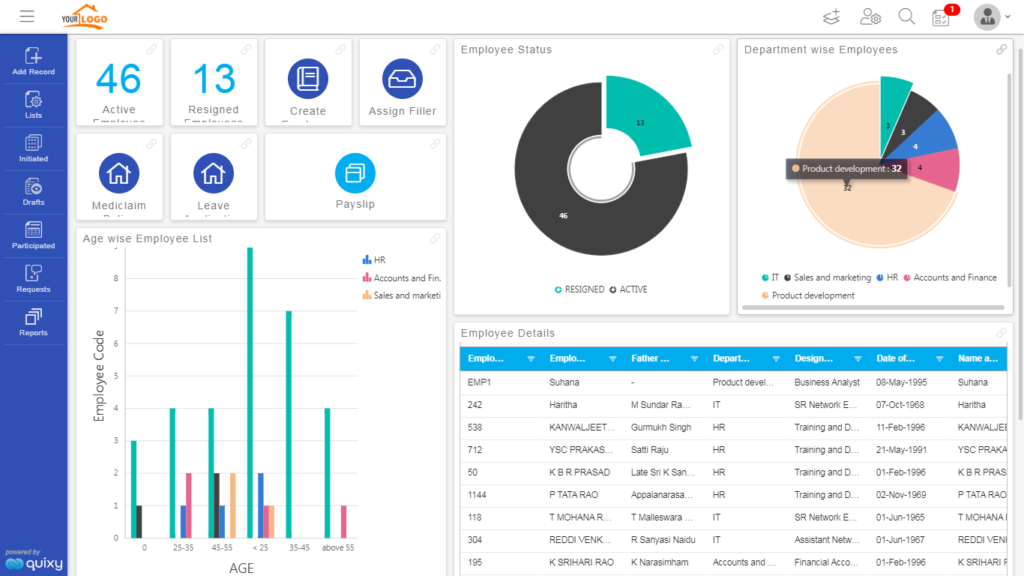Enhance Open System Database Production with No-Code Development Operatings Systems
Enhance Open System Database Production with No-Code Development Operatings Systems
Blog Article
Checking Out the Benefits of Scalable Databases That Call For No Coding Skills for Reliable Data Management Solutions
The appearance of scalable databases that remove the necessity for coding abilities presents a transformative chance for companies looking for reliable data management remedies. By allowing non-technical customers to harness the power of data with instinctive interfaces, these systems improve ease of access and foster cooperation across diverse groups. Their cost-effectiveness and adaptability to advancing service requirements can significantly streamline functional procedures. As we think about the implications of such developments, it becomes critical to check out just how they can reshape the landscape of data management and drive sustainable development in a competitive atmosphere.
Boosted Ease Of Access for Users
Enhanced accessibility for customers is a crucial element of scalable databases, guaranteeing that data management systems are intuitive and user-friendly. In an age where data-driven decisions are critical, accessibility permits a wider variety of customers, including those without extensive technical expertise, to engage with database systems effectively. This democratization of information gain access to helps with improved cooperation across divisions, equipping employees to remove insights and make informed choices.
Straightforward user interfaces, such as drag-and-drop attributes and visual information depiction, simplify intricate data communications. These improvements lower the knowing curve associated with standard database monitoring, allowing users to concentrate on leveraging data instead than grappling with technical intricacies. Scalable data sources often integrate real-time analytics and customizable control panels, giving users with instant understandings customized to their specific requirements.

Cost-Effectiveness and Source Cost Savings
Effective information management not just depends upon ease of access but additionally on cost-effectiveness and source savings. Scalable data sources designed for customers with no coding skills dramatically decrease financial concerns generally connected with typical database administration systems. By eliminating the requirement for specialized programs proficiency, companies can assign their sources a lot more efficiently, focusing funds on core business tasks as opposed to comprehensive training or working with experienced workers.
In addition, these databases typically make use of cloud-based remedies, which further decrease prices related to hardware and maintenance. Organizations can scale their data source remedies according to their demands, avoiding the expenses incurred from over-provisioning resources. This versatility indicates organizations can adjust to changing needs without incurring unnecessary costs, leading to substantial long-term cost savings.
Furthermore, easy to use user interfaces enhance data entrance and administration procedures, minimizing the moment invested in administrative tasks. This efficiency translates into labor cost financial savings, permitting teams to focus on strategic campaigns instead than regular upkeep. Generally, embracing scalable databases that require no coding abilities cultivates a much more economical technique to data management, enabling companies to optimize their resources while maintaining high degrees of functional effectiveness.
Improved Collaboration Throughout Teams

In addition, scalable data click over here sources promote seamless visit their website communication among employee. With easy to use interfaces that call for no coding abilities, employees can easily create, modify, and share reports or dashboards tailored to their specific needs. This democratization of information encourages non-technical customers to add insights, enhancing the collaborative environment.
Additionally, these data sources sustain simultaneous accessibility, enabling several individuals to work with the same dataset concurrently. This attribute boosts performance, as groups can take part in joint data evaluation without the threat of variation control problems. The ability to leave comments or notes straight within the database additionally advertises discussion and makes clear information interpretations.
Streamlined Information Administration Processes
In today's data-driven environment, organizations acknowledge the requirement of streamlined data administration refines to take full advantage of effectiveness and accuracy. By leveraging scalable databases that need no coding abilities, businesses can streamline their data handling and reduce the intricacies generally related to traditional database systems. This access equips non-technical users to involve directly with data, facilitating quicker decision-making and lowering reliance on specialized IT workers.
Streamlined information management procedures improve operations by automating routine jobs such as data access, validation, and coverage. Automated data combination ensures that details from different resources is aggregated effortlessly, eliminating silos and cultivating a combined sight of critical service metrics (no-code). Furthermore, easy to use user interfaces enable employees to manipulate data conveniently, enabling them to produce understandings that drive strategic efforts without the demand for comprehensive training.
This effectiveness not just increases functional processes however likewise minimizes the possibility for human error, guaranteeing that data continues to be exact and dependable. Inevitably, structured information monitoring procedures through scalable databases cause improved efficiency, permitting companies to look at this web-site concentrate on core tasks while making sure that their information monitoring techniques are effective and efficient.
Scalability for Growing Organizations

For expanding ventures, the capability to scale up or down is essential. A scalable database can take care of an influx of information produced from new customers, items, or services, ensuring that organization operations remain undisturbed. These databases give the capability to take care of peak tons effectively, which is crucial throughout durations of quick growth or seasonal spikes.
In addition, lots of scalable database options are designed with easy to use interfaces that call for no coding skills, encouraging non-technical team to manage information effectively (no-code). This democratization of information administration allows companies to designate resources tactically and reduce reliance on specialized IT workers
Eventually, adopting a scalable database not only enhances functional performance but also fosters an atmosphere where organizations can progress and introduce without the constraints of conventional data source systems. This flexibility placements organizations for long-term success in today's competitive landscape.
Final Thought
In conclusion, scalable data sources that call for no coding skills offer significant advantages for reliable information administration. By improving data monitoring procedures and providing scalability for expanding services, such solutions make it possible for companies to adjust to changing demands successfully.
Enhanced availability for users is a crucial aspect of scalable data sources, making sure that data management systems are intuitive and straightforward.Easy to use interfaces, such as drag-and-drop attributes and visual data representation, streamline complex information interactions. On the whole, embracing scalable databases that call for no coding skills cultivates a more cost-efficient method to information management, making it possible for organizations to optimize their resources while preserving high degrees of operational performance.
By leveraging scalable databases that need no coding abilities, services can simplify their data handling and lower the complexities commonly associated with standard data source systems - no-code.Streamlined information monitoring processes improve operations by automating routine tasks such as information entry, validation, and coverage
Report this page